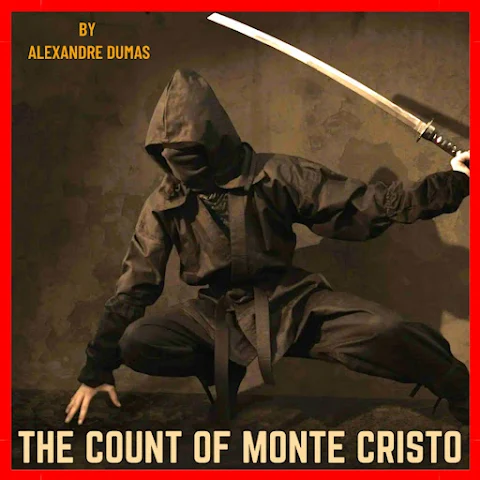The Friend Who Became a Monster
Fernand Mondego is one of literature's most despicable villains, yet he starts as Edmund's friend and neighbor. His transformation from a simple fisherman to the corrupt Count de Morcerf is a masterclass in how jealousy can utterly destroy a person. Let's dive deep into the psychology of this fascinating villain.
The Seeds of Jealousy
Fernand's story begins long before the novel starts. He's a Catalan fisherman who has loved Mercédès since childhood. But here's the problem - she only has eyes for Edmund. Imagine watching the woman you love choose someone else, day after day, year after year.
What Fernand Had:
- Physical Strength: A strong, capable fisherman
- Local Respect: Known in the community
- Proximity: Lived near Mercédès
- Persistence: Never gave up hoping
What He Lacked:
- Mercédès' Love: The one thing he wanted most
- Edmund's Charm: Natural charisma and likability
- Career Success: Edmund was rising, Fernand was stuck
- Honor: The integrity that made Edmund attractive
The Moment of Betrayal
When Danglars proposes the conspiracy against Edmund, Fernand doesn't hesitate. He's been waiting for this chance. What's terrifying is how quickly he abandons friendship for opportunity. One conversation, and he's ready to destroy his "friend's" life.
The Conspiracy Meeting:
- Location: La Réserve tavern
- Participants: Danglars (mastermind), Fernand (muscle)
- The Plan: Anonymous denunciation
- Fernand's Role: Deliver the letter
- His Motivation: Pure jealousy over Mercédès
The Coward's Victory
After Edmund's arrest, Fernand doesn't sweep in immediately. He waits, showing a calculating nature beneath his rough exterior. He lets Mercédès grieve, lets her hope fade, then positions himself as her only option. It's manipulative and cruel.
His Strategy:
- Wait 18 Months: Let hope die naturally
- Play the Friend: Always there, always helpful
- Economic Pressure: Mercédès needs support
- Family Influence: Get her relatives on his side
- Persistence: Never let her forget he's an option
The Transformation: From Fisherman to Count
Here's where Fernand's story gets really dark. He doesn't just marry Mercédès and live happily. He uses his marriage as a stepping stone to power, becoming everything Edmund was supposed to be - and more.
His Rise to Power:
- Military Service: Joins during Greek independence war
- Betrayal of Ali Pasha: Sells out his benefactor
- Blood Money: Gains fortune through treachery
- Noble Title: Becomes Count de Morcerf
- Political Power: Enters the Chamber of Peers
The Ali Pasha Betrayal: Fernand's True Nature
The way Fernand gains his fortune reveals his true character. He doesn't just betray Ali Pasha - he sells him to his enemies, causes his death, and sells his wife and daughter into slavery. This isn't just ambition; it's pure evil.
The Greek Betrayal:
- Position: Trusted advisor to Ali Pasha
- The Deal: Sells fortress plans to enemies
- The Result: Ali Pasha's death, family enslaved
- The Reward: 4 million francs in gold
- The Cover-up: Returns to France as a "hero"
Living a Lie: The Count de Morcerf
As Count de Morcerf, Fernand has everything he thought he wanted - wealth, power, Mercédès, a son. But it's all built on lies and blood. He lives in constant fear that his past will catch up with him.
His Gilded Cage:
- Paranoid: Always watching for threats
- Loveless Marriage: Mercédès never loved him
- Distant Son: Albert doesn't respect him
- Empty Honor: Knows his titles are stolen
- Social Climber: Never truly accepted by nobility
The Count's Revenge: Surgical Precision
When Monte Cristo targets Fernand, he doesn't just expose him - he destroys him systematically. The revenge is perfectly tailored to Fernand's crimes and fears.
The Destruction Plan:
- Haydée's Testimony: Living proof of his crimes
- Public Exposure: Revealed in Chamber of Peers
- Social Ruin: Stripped of honor and position
- Family Abandonment: Mercédès and Albert leave
- Complete Isolation: Left with nothing
The Psychology of Fernand's Villainy
What makes Fernand so fascinating is that he's not a mastermind like Danglars or a cold calculator like Villefort. He's driven by pure emotion - jealousy, greed, fear. He's the most human of the villains, which makes him the most contemptible.
His Psychological Profile:
- Inferiority Complex: Always felt less than Edmund
- Obsessive Love: Fixated on Mercédès
- Moral Weakness: No internal compass
- Cowardice: Always takes the easy, dirty path
- Self-Deception: Convinces himself he deserves success
The Final Confrontation
When Fernand confronts Monte Cristo, he finally understands who his enemy is. The recognition scene is powerful - after all these years, facing the man he destroyed, now transformed into his destroyer.
The Last Meeting:
- Recognition: "You are Edmund Dantès!"
- No Remorse: Still tries to justify his actions
- Threats: Attempts violence when exposed
- Cowardice Again: Can't face the consequences
- Final Act: Suicide - the ultimate escape
Fernand as a Mirror to Edmund
Fernand represents what Edmund could have become without honor. Both men start as simple sailors, both love Mercédès, both seek advancement. But where Edmund has integrity, Fernand has only appetite.
The Parallel Paths:
- Starting Point: Both are young sailors
- Ambition: Both want to rise in the world
- Love: Both love the same woman
- Methods: Honor vs. treachery
- Endings: Redemption vs. destruction
The Modern Fernand
Fernand's type still exists today - the friend who smiles to your face while plotting your downfall, the colleague who takes credit for your work, the person whose jealousy turns them toxic. His story is a warning about what happens when we let envy control us.
Contemporary Parallels:
- Workplace Backstabbing: Sabotaging colleagues
- Social Media Envy: Destructive comparison
- Relationship Jealousy: Trying to steal partners
- Success Resentment: Hating others' achievements
- Moral Compromise: Anything to get ahead
Why Fernand Had to Die
Unlike the other villains, Fernand commits suicide. This isn't just dramatic convenience - it's the only ending that makes sense for his character. A coward to the end, he can't face justice, poverty, or life without his false identity.
Lessons from Fernand's Fall
Fernand's story teaches us that:
- Jealousy corrupts absolutely
- Success built on betrayal is hollow
- We become what we do, not what we pretend
- The past always catches up
- Love can't be stolen or forced
The Ultimate Tragedy
The real tragedy of Fernand Mondego is that he had choices. At every turn, he could have chosen differently. He could have accepted Mercédès' choice, found his own path to success, built a life on truth. Instead, he chose jealousy, betrayal, and lies. In trying to steal Edmund's life, he lost his own soul.


